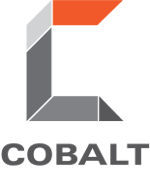A static site generator written in Rust.
$ cargo install --git https://github.com/cobalt-org/cobalt.rs
There are a few people already using cobalt. Here is a list of projects and their source code that use cobalt.
$ cobalt new myBlog
$ cobalt build -s myBlog -d path/to/your/destination
See more options with
$ cobalt -h
You can have custom layouts in the _layouts directory.
Layouts will be compiled as liquid templates.
Posts live in _posts.
Example:
extends: posts.liquid
title: My first Blogpost
date: 01 Jan 2016 21:00:00 +0100
---
Hey there this is my first blogpost and this is super awesome.
My Blog is lorem ipsum like, yes it is..
The content before --- are meta attributes ("front matter") made accessible to the template via their key (see below).
The extends attribute specifies which layout will be used.
The date attribute will be used to sort blog posts (from last to first). date must have the format %dd %Mon %YYYY %HH:%MM:%SS %zzzz, so for example 27 May 2016 21:00:30 +0100.
Any file with the .md or .liquid file extension is considered a liquid template and will be parsed for metadata and compiled using liquid, like a post.
Unlike posts, files outside the _posts directory will not be indexed as blog posts and not passed to the index file in the list of contents.
All other files and directories in the source folder will be recursively added to your destination folder.
You can specify different template extensions by setting the template_extensions field in your config file:
template_extensions: ['txt', 'lqd']All template files have access to a set of attributes.
In example above title is accessible via {{ title }} and date via {{ date }}, for the layout template as well as the post template.
{{ content }} is accessible only to layouts and contains the compiled text below the --- block of the post.
{{ posts }} is a list of the attributes of all templates in the _posts directory. Example usage on a page listing all blog posts:
{% for post in posts %}
<a href="blog/{{post.name}}.html">{{ post.title }}</a>
{% endfor %}
To generate an RSS file from the metadata of your _posts, you need to provide the following data in your config.file:
# path where the RSS file should be generated
rss: rss.xml
name: My blog!
description: Blog description
link: http://example.comNone of these fields are optional, as by the RSS 2.0 spec.
Make sure to also provide the fields title, date and description in the front matter of your posts.
To import your site to your gh-pages branch you can either pass a build --import flag when you build the site or after you have build the site with build you can run import. There are also some flags that can be found via import --help.
Note: to import to gitlab pages you can pass import --branch gl-pages
You can easily deploy a cobalt site to gh-pages or gl-pages! To do this with travis is also very easy. You will need to have rust available on travis. In your travis.yml you will need to have something similar to this:
sudo: false
language: rust
before_script:
- cargo install --git https://github.com/cobalt-org/cobalt.rs
- export PATH="$PATH:/home/travis/.cargo/bin"
script:
- cobalt build
after_success: |
[ $TRAVIS_BRANCH = master ] &&
[ $TRAVIS_PULL_REQUEST = false ] &&
cobalt import &&
git config user.name "Cobalt Site Deployer" &&
git config user.email "[email protected]" &&
git push -fq https://${GH_TOKEN}@github.com/${TRAVIS_REPO_SLUG}.git gh-pagesFor the GH_TOKEN you will need to create a personal access token, which can be found here, then you will need to use the travis cli tool to encrypt your personal access token. You can do this like so travis encrypt GH_TOKEN=... --add env.global
Note: For gl-pages you will need to pass import --branch gl-pages and you will need to change the url that git pushes to.

